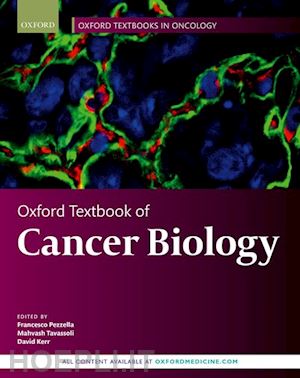The study of the biology of tumours has grown to become markedly interdisciplinary, involving chemists, statisticians, epidemiologists, mathematicians, bioinformaticians, and computer scientists alongside biologists, geneticists, and clinicians. The Oxford Textbook of Cancer Biology brings together the most up-to-date developments from different branches of research into one coherent volume, providing a comprehensive and current account of this rapidly evolving field. Structured in eight sections, the book starts with a review of the development and biology of multi-cellular organisms, how they maintain a healthy homeostasis in an individual, and a description of the molecular basis of cancer development. The book then illustrates, as once cells become neoplastic, their signalling network is altered and pathological behaviour follows. It explores the changes that cancer cells can induce in nearby normal tissue, the new relationship established between them and the stroma, and the interaction between the immune system and tumour growth. The authors illustrate the contribution provided by high throughput techniques to map cancer at different levels, from genomic sequencing to cellular metabolic functions, and how information technology, with its vast amounts of data, is integrated with traditional cell biology to provide a global view of the disease. The effect of the different types of treatments on the biology of the neoplastic cells are explored to understand on the one side, why some treatments succeed, and on the other, how they can affect the biology of resistant and recurrent disease. The book concludes by summarizing what we know to date about cancer, and in what direction our understanding of cancer is moving. Edited by leading authorities in the field with an international team of contributors, this book is an essential resource for scholars and professionals working in the wide variety of sub-disciplines that make up today's cancer research and treatment community. It is written not only for consultation, but also for easy cover-to-cover reading.











